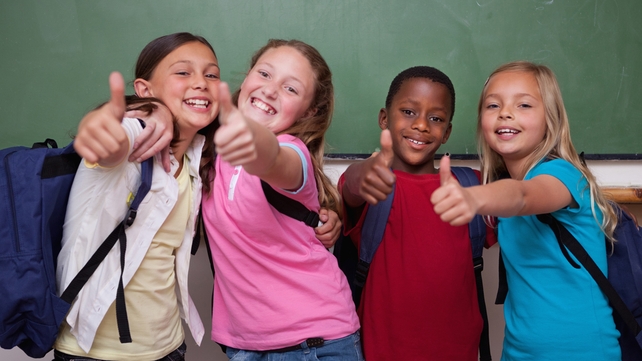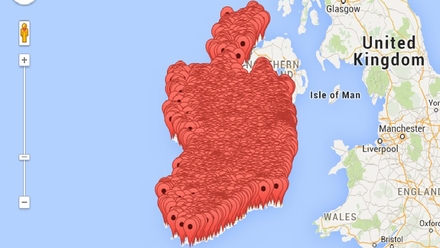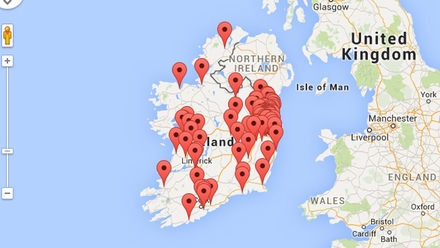Over half a million children started school in Ireland this week and we have seen pictures of their eager faces smiling up at us from colourful classrooms in newspapers across the country. It’s an exciting time for children, usually fraught with mixed emotions for parents, but at the end of the day we all want to give our children the best education possible, and Ireland is often credited with having one of the best education systems in the world. But, in an increasingly secular and culturally diverse country, is it right that our schools are still so strongly tied to the Catholic ethos of ‘old Ireland’ – and does it matter?
In early July, a petition started appearing on Facebook and Twitter feeds across Ireland. It was started by a north Dublin man called Paddy Monahan and it spread quickly through likes and shares supporting Paddy’s plea to the State to stop discriminating against his three-month-old son, Cormac. Paddy’s concerns centre on his child’s right to an education, as a non-Catholic.
Paddy says that a certain section of the Equal Status Act 2000 enables schools to discriminate based on religious grounds and he feels that schools are taking full advantage of this apparent loophole.
“Schools throughout the country state in their enrolment policies that baptised children take preference over unbaptised children,” said Paddy, who is a barrister. “This situation is manifestly unfair, discriminatory and undemocratic. This issue affects not only children and parents but all Irish people with an interest in fairness and democracy.”

The trend amongst parents in Ireland, however, seems to lean more towards apathy than anarchy. The practice of having children baptised so that they can get in to certain schools appears to pervade modern Ireland. Obviously the evidence for this is anecdotal and the figures estimated as children who are baptised are, of course, registered as Catholic, so who is to say that this isn’t really where their belief systems lie?
Well, judging by the 13,700 and rising signatures on Paddy Monahan’s petition, which he aims to lay before the Oireachtas Petitions Committee when it reconvenes in the coming weeks, there seems to be a strong suggestion that a lot of people would like to see more diversity in schools where religion and religious teaching are concerned.
Sarah Kennedy from Dublin, who had her now 12-year-old daughter baptised in 2003, told RTÉ LifeStyle that, for her, it was simply a case of it being “the done thing”.
“When my daughter was starting school eight years ago, there were very few Educate Together or non-denominational schools,” she says. “Whatever your personal faith or beliefs were, if you grew up in Ireland in a mostly Catholic community, you got your child baptised so that you could hand their baptismal certificate into the local primary school and put their name down. It was rarely questioned.”

Indication of the number of Irish schools with a Catholic Ethos
Now, though, it seems that more people are questioning it. Yvonne Kearns (37) and her husband Kiran have two daughters: 14-year-old Sophianne and four-year-old Olivia. Yvonne grew up as a Catholic, like many Irish people she drifted and lapsed, and now doesn’t count herself as part of the Church. Similarly, Kiran grew up in Mauritius and was born into the island’s majority religion, Hinduism, but doesn’t consider himself a devout Hindu. Their children have not been baptised into any particular religion. The couple previously lived in Lucan in Dublin, where their eldest daughter attended the local Educate Together primary school. They were very happy with it. When she was in fifth class, they decided to move to a small town in Enfield, Co. Meath where the only schools in their catchment area were Catholic ethos schools. As a non-Catholic family, Yvonne and Kiran’s concerns were about what their children would be learning about religion in class and how much it would detract from their academic education.

Indication of the number of non-denominational Irish schools
Yvonne told RTÉ LifeStyle, “I would prefer it if my daughters learned about all different kinds of faiths and religions, rather than just Catholicism. For Sophianne, it didn’t cause an issue moving to a Catholic school as such, but I would prefer there to be the option for people to study religion separately, outside of school.”
Not everyone agrees, however. Speaking on the subject of diversifying school patronage, former minister for education Ruairí Quinn TD told RTÉ Radio 1’s Drivetime programme recently that he believes there is less support for divestment of schools from the Catholic Church as we might think.
“Outside Dublin, many of the bishops and many of the religious teaching orders have no enthusiasm for this particular project and are fearful, I suspect, of upsetting some parents and upsetting some vested interests in the 90% of the primary schools that the Catholic Church controls,” he said.
Furthermore, Joanna Tuffy, Labour Party TD for Dublin Mid West who chairs the Oireachtas Joint Committee on Education and Social Protection, recently told The Irish Catholic: “Divestment hasn't been very popular with parents. You’re asking them to move from one kind of patron to another; it’s understandable that parents and school communities don’t want divestment. They need to be given more and that situation needs to be understood more.”
She went on to say that in her opinion “multiple patronage and ethos as a basis for policy can lead to segregation and inequality in the education system.”
She continued: “Increasing diversity is not a good approach as it doesn't cater for villages, and makes the system more divided, moving from a system of Catholic schools that are relatively inclusive to more segregation. It’s just perpetuating things and making things even more divided.”
Perhaps the point being raised by many is that segregation of children by religion is not the solution here; I think everyone would agree on that. As Ireland becomes more culturally diverse and secular, ‘inclusivity’, rather than ‘diversity’, needs to remain a key factor in considering what is best for the children of our new Ireland.
Nobody likes change. Change is hard. As a nation, we tend to resist it. But Ireland is changing, and it will continue to change. It’s up to our education system, our Government, the current school patrons and – most importantly – the parents, to determine what the best course of action to take towards an inclusive school system is and start making tracks to get there together.
Sheena Madden


